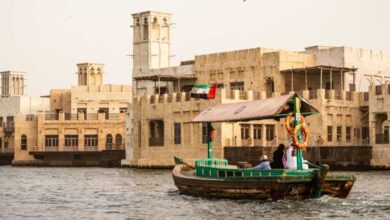Democracy a far cry in Myanmar

The proposed sugar projects were cut due to the opposition of the NLD government.
The proposed sugar projects were cut due to the opposition of the NLD government. Of the total thirty-eight plans proposed in the China-Myanma Economic Corridor, only nine were agreed to by the then democratic government of the NLD. In such a situation, how could China tolerate an elected government of the NLD?
The clouds of uncertainty about the restoration of democracy in Myanmar are deepening. Whether or not democracy will be restored in this country, and if so for how long, these are the questions that remain a matter of concern not only for Asian countries but also for Western countries. However, from the stand of the military rulers here so far, it seems that the return of democracy in Myanmar is not easy. Last month, India’s Foreign Secretary Harsh Vardhan Shringla had gone on an official visit to Myanmar. This was the first visit by an Indian representative to Myanmar since the coup of the elected government in February last year. During this visit, the Indian Foreign Secretary had sought permission from the military rulers of Myanmar to meet the jailed leader Aung San Suu Kyi. But they did not get permission for this. This attitude of the military rulers of Myanmar indicates a lot.
Shringla’s visit to Myanmar is considered important in terms of pressure diplomacy. However, it is too early to make any guesses about its results at the moment. The visit of the Indian Foreign Secretary was also significant in view of the growing insurgency in the northeastern states and the indirect interference of China. India has tried to pressure the military rulers to restore democracy in Myanmar. In the meeting held with the Myanmar Administrative Council, Shringla talked about many important issues. In this meeting, the issue of increasing extremist activities in the northeastern states of India and the militant organizations sitting in the border of Myanmar was particularly raised. However, how serious Myanmar will be on India’s concerns depends on China. Because at this time the military administration of Myanmar is completely under the influence of China.
Myanmar’s military rulers are not ready to accept any external pressure to restore democracy in the country. They are not even caring about the sanctions of other western countries including the United Nations and America. There is an agreement between the military rulers of China and Myanmar, in which both are taking care of each other’s interests. This is having a direct impact on other neighboring countries of Myanmar. The fear of China is such that many other countries including ASEAN are taking cautious steps regarding Myanmar. The end of democracy in Myanmar has had a direct impact on India, Bangladesh and Thailand. Due to increasing military repression on pro-democracy, people were forced to take refuge in India, Bangladesh, Thailand. The Myanmar army is still behaving violently with the supporters of democracy. The whole world is watching the way democracy supporters are being targeted and movements are being crushed across the country.
India shares a nearly seventeen hundred kilometer long border with Myanmar. India’s concern is also that the Myanmar army is secretly providing support to the bases set up in Myanmar by militant organizations operating in the northeastern states and it is doing so at the behest of China. Some time ago, some soldiers including an officer of the Indian Army were martyred in the terrorist attack in Manipur. It is believed that the people of the militant organization responsible for this attack are in the area of Myanmar.
During his visit, the Indian Foreign Secretary met representatives of the National League for Democracy (NLD). China has played an indirect role in the overthrow of the democratic government in Myanmar. In fact, before the democratic government coup in February this year, Myanmar military chief Min Aung Leng and senior Chinese government diplomat Wang Yi met. It is said that in this meeting, China had agreed to the coup. This is the reason why Myanmar is not heeding the global pressure and has kept Aung San Suu Kyi in jail.
He has also been sentenced in one case. India is not unaware of the fact that China was unhappy with the then NLD government in Myanmar. The reason for this was the economic interests of China. The government of the NLD did not agree with the proposed Chinese investment plans in Myanmar. The NLD government was careful about the Chinese loans received in various investment schemes. He feared that Myanmar would fall into a debt trap on the pretext of Chinese investment. The proposed sugar projects were cut due to the opposition of the NLD government. Of the total thirty-eight plans proposed in the China-Myanma Economic Corridor, only nine were agreed to by the then democratic government of the NLD. In such a situation, how could China tolerate an elected government of the NLD?
But now after the arrival of military rule, the work of China-Myanma Economic Corridor is in full swing. This economic corridor is being developed on the lines of China-Pakistan Economic Corridor. The China-Myanmar Economic Corridor will greatly aid China in military expansion in the Indian Ocean. Under this, a rail network is to be set up in Myanmar. The proposed rail network is proposed to connect various industrial areas within the country. An important plan of the corridor is also the development of the Kyapayu port in Rakhine province of Myanmar.
This port is located on the eastern border of India, which will become the future Gwadar. The Gwadar port in Balochistan in Pakistan is now completely under Chinese control. In order to secure the presence of China at Gwadar port, various restrictions are being imposed on the local citizens. The local people are agitating against the government because of these restrictions. If China is successful in developing Myanmar’s Kyakpyu port, then India will suffer its loss in future, Myanmar will not remain untouched by it. China will increase its dominance in the Indian Ocean through this port. On the one hand, China is planning to import oil and gas through the Kyapayu port, and on the other hand it also aims to encircle the Indian maritime border.
Of course, the military rulers of Myanmar are cooperating in the cause of China, but the people of Myanmar are understanding the objectives of China and that is why they are opposing it. China is heavily exploiting Myanmar’s natural resources. This has angered the local people. The problem of displacement in Myanmar is exacerbated by Chinese projects. People in Kachin State had opposed the proposed Matson hydroelectric project in collaboration with China, which led to the cancellation of the project. That is why China wants the military government to remain in Myanmar and suppress the opposition.
The relation between India and Myanmar is centuries old. Its basis is the civilization and culture of both the countries. The majority of the population in Myanmar follows Buddhism. Eighty-eight percent of the population here is Buddhist. But the minority Muslims here have been the target of Buddhists and the army from the very beginning. This ethnic and religious violence in Myanmar has a direct impact on India. It is the result of such violence that today thousands of Rohingya refugees are taking refuge in India. In such a situation, if China is directly strengthened in Myanmar, then the situation will be equally challenging for India.
,





